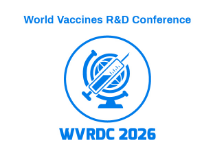Scientific Committee

B Ekine Afolabi
B Ekine Afolabi
- Designation: Founder & CEO of ZEAB Therapeutic LTD
- Country: United Kingdom
Biography
Bene is a graduate of River State University of Science & Technology in Applied Biology (Medical Microbiology option); with an MRes degree at University of East London, United Kingdom.
She had her PhD study & worked at the Department of Natural Sciences, Middlesex University, UK. Trained in practical approach to toxicology in drug development (American College of Toxicology/British Toxicology Society). Bene had Harvard University part-sponsored training in Cancer Biology & Therapeutic, and received a 2nd Harvard award for a complementary training in COVID-19 and Mental Health for Medical Professionals. Bene has her expertise in evaluation and passion in improving the health and wellbeing. Her open and contextual evaluation model based on responsive constructivists creates new pathways for improving healthcare. Researching in Microbiology, Molecular Biology and Cancer: Her current focus of research (which has yielded eight designed drug models), is on the Investigation of molecular mechanism of colorectal cancer and due to the year 2020 pandemic, has been involved in drug development for COVID-19; she set up a diagnostic laboratory for COVID-19 testing service, and now expanding diagnostic scope. Bene has been speaking in several conferences and published over seven peer reviewed articles, as well as written a chapter in Springer Nature book series on Cancer & Immunology. And a manuscript on COVID-19 was submitted to the Chief Medical Officer of United Kingdom to assist in response to the pandemic. Bene sits on journals’ editorial boards, and review panels. Bene sits on congress’ committee Board (European Congress on Human Genetics 2024, Oncology & Cancer Conference 2024). She is expanding through her years of research evaluation and teaching to establish Hospital projects in Africa, starting with Nigeria’s state-of-the-art Hospital project. Bene is the Founder & CEO of ZEAB Therapeutic LTD, UK, ZEAB Medical Centre, Lagos Nigeria; as well as the founder of two non-profit organizations: Citizen’s Wellbeing Intervention UK, and Earthwise & Citizens’ Empowerment Nigeria. She was recently endorsed by and in collaboration with the Ministry of Environment Nigeria for promotion of transition to Green Renewable system. She is a member of the Medical Research group council at University of East London, a research consultant with Norxin Medical research Cooperation. She is honoured with an affiliation to Universal Scientific Education & Research Network (USERN), London, England United Kingdom.
Abstract
The accumulating evidence and establishment of the consensus that living organisms constitute not only blood, organs and tissues, but includes microbiota (bacteria, fungus, virus, parasites) is gaining attention in the pathogenesis of cancers. Globally, millions are affected by pathogen related cancers. Humans are made up of resident microbiota that are implicated in the health and sickness paradigm. The role of these resident microbiotas is demonstrated in homeostasis maintenance, such as hydrolysis of glucoraphanin to sulforaphane by myrosinase or gut microbiome. Sulforaphane inhibits the Kelch-like ECH-associated protein mediated degradation of NrF2, allowing NrF2 to migrate from cell cytoplasm into the nucleus where it binds to antioxidant responsive element in the promoter regions of NrF2 target genes, including GSTM1 (family of Glutathione-S-Transferase, which is phase II antioxidant enzymes), thus increasing their transcription, activities and resulting in decrease in reactive oxygen species (ROS), reactive aldehydes (RAs) and factors involved in inflammation. Inter-individual variations in microbiota occurs, which gives rise to inter-individual heterogeneity in drug response. Pathogens are agents of mutations and play pivotal role in tumour growth and cancer evolution, acting as hidden drivers. Infectious agents such as Human Papillomavirus (HPV), Epstein-Barr Virus, Helicobacter pylori, disrupt host cellular homeostasis and facilitate tumour development. Recent therapeutic strategies are exploring pathogen-specific immunotherapies, such as immune check-point inhibitors, vaccines’ therapy and cutting-edge gene-editing technologies like CRISPR. Advancing technologies that aim at oncogenic pathway as antifungal, antibacterial, and antiviral are highlighted in addition to integration with conventional cancer treatments. This review highlights the urgency of enhancing cancer prognosis through multidisciplinary methods with the view of cancer pathogens.

